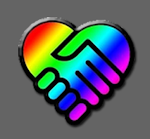I watched a movie recently called “I Know Where I’m Going!” (1945). It was quite wonderful; charming, quirky, non-linear and both of and ahead of its time. The film was set in a remote island area to the west of Glasgow, Scotland. Throughout the movie, a number of characters spoke Scottish Gaelic. As I listened, I couldn’t help but wonder if the ancestors on my father’s side had spoken Scottish Gaelic when they lived in and around Glasgow. My paternal great grandparents, James and Mary, were born in the middle of the 19th century in Scotland. Their two eldest children were born there as well. The youngest four, including my grandfather Alexander, were born in Rhode Island in the late 1800s.
Great grandparents James and Mary passed before I was born. Several of their children, my great aunts and uncles, were alive for many years after my birth. But I never met any of them. From what I can piece together, there was a falling out; a rift developed between my grandfather Alexander and the rest of his family. My mother thinks it had something to do with Alexander’s family disapproving of his choice of bride, my grandmother Catherine. However the rift began, it was never, ever healed.
Sometimes, a later generation can reach across the gulf and find a way to let the disagreements of their parents lie in the past. That happened in Chuck’s family. Siblings at his father’s generation lived with a rift for many years. Then Chuck wrote a letter to his cousins from whom he had been estranged and a door opened. Sadly, this never happened between my family and my paternal grandparent’s family. Which is how I came to wonder the other day about how many things I missed out on. What could my great aunts and uncles John, James, Mary, Lizzie and Madeline Rose have taught me? Would they have loved me? Would my toddler smile have melted their hearts as it did my grandfather Alexander’s? Would they have shared recipes, traditions, family stories and history with me? And would any of the Scottish Gaelic they may have spoken been passed on to me?
I love the private languages of families. It can be the expressions they use which set them apart from their neighbors, just as it ties them strongly to generations past. Or it can be the languages of their home countries and larger communities such as Canadian French, Cajun French, Gaelic and so on - and of course Yiddish. Yiddish is the German language which originated with Ashkenazi Jews centuries ago. It remains the mother tongue (mame loshn) in fact or emotion for Jews around the world today. When I first became close to Chuck, Yiddish fascinated me. It was part of the secret handshake of his family. His parents, aunts and uncles sat up and took notice when the Irish Catholic girl pronounced and used a Yiddish phrase correctly. It was a hand outstretched in friendship from me and it was welcomed. The first time I was able to make a joke, a play on words, simultaneously in both English and Yiddish I felt as if I should be moving the tassel on my mortarboard!
So as I watched “I Know Where I’m Going!” and listened to the Scottish Gaelic rise up in the back of the actors' throats, roll around on their tongues and spill out in rapid, easy, comfortable conversation, I felt a sharp pang. It was somewhere between recognition and loss. It made me long for what I might have learned from my Scottish uncles and aunts. And made me even more grateful for the way Chuck and his family welcomed me in and began teaching me their mame loshn, which has, in many ways, become mine as well.
Subscribe to:
Post Comments (Atom)
















5 comments:
I hear you on this one. My paternal grandfather died when my dad was 17 and I always wish I'd known more about him (nobody really spoke about him). I hope that you find peace over your long lost relatives - this is life all over. I also have second cousins living in the UK that we've lost contact with over family disputes that weren't our own...
XXX
I love family words and phrases, and when you hear your beloved use one, you know they think of themselves as one of yours.
Well my ancestors are Irish and Scot, hence the fact that I'm short, bullish, hairy, blue eyed and I had blond hair as a kid. I use "wee" for small and "bairn" for small child (which in itself is very Scandinavian)and I have an Aunt that calls me Drew (which I like). I was amazed when I heard "wee" and "bairn" being used so much on the South Island in NZ, until I realised most of the early white settlers where Scot. We still have a lot of regional dialects here in the UK, and Wiki has a good article on the older languages - http://en.wikipedia.org/wiki/Scottish_Gaelic
Hearing the Gaelic word spoken give me goose flesh. I was born in Kenya and both my parents were Scottish. I too have so many cousins that I vaguely know about but have not met. Maybe one day. I have to say though that although I was not born in Scotland it has a very strong pull on me for some reason. Been absent far too long from reading all the blogs. It is nice to be back. Fiona
Hi Sue -
You're right, these sorts of falling outs are all too common. It wasn't until I listened to the Scottish Gaelic that I began to wonder about that particular branch of my family. They never knew me, but I feel very connected to them
Hi DMM -
Yes! When I first heard Chuck using my and my family's phrases, it was another connection, another sign of love.
Hi Roo -
I think I've mentioned before how fascinating the PBS series "The Story of English" was to me. I believe that was when I first realized that many of the expressions I grew up using as a kid in Rhode Island, had their roots in England, Scotland and Ireland. They weren't just familial, they were part of a larger culture and that was well after successive waves of immigration had brought Italians and Portuguese to RI.
Thanks for the link...
Hi Fiona -
Welcome back! Speaking of family, your trip to visit with Wendy, Kristian and Lily sounded (and looked) wonderful.
Isn't it interesting how these homes of our ancestors call to us across generations?
Post a Comment